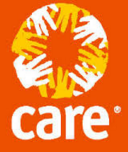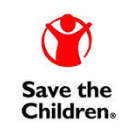Purpose of the Position
You will be accountable for developing, managing, co-ordinating, networking, implementing and monitoring an advocacy and communication strategy and associated products and activities on a regular and on-going basis with public audiences, with the objective of promoting awareness, understanding, support and respect for children's and women's rights, and support for UNICEF's mission, priorities and programmes in the country office and at a global level and those of the UN Country Team.
You will advise on the articulation of policies and strategies, with an emphasis on those that promote gender equality and equity.
Key Expected Results
1. Communication strategy
Ensure that the Country Office has a clear communication strategy and associated work plan to support the country programme objectives and get children's issues into the public domain, strengthen political will in support of UNICEF's mission and objectives, and enhance the organization's credibility and brand.
Develop, maintain and update the country advocacy and communication strategy and associated work plan. Strategy and work plan include an environmental and stakeholder assessment; objectives; target audiences, messages and media mix; resources; specific actions, activities and products; monitoring and evaluation of impact, success and opportunity for improvement; ongoing refinement of the strategy.
Draw on extensive strategy development experience and ensure optimum leverage and impact of communication activities on programme, policy and advocacy activities. UNICEF's rights- and results-based programming approach is appropriately reflected in the communication strategy, work plan and products. Strategy and work plan incorporate and reflect key programme priorities and processes.
Ensure adequate and ongoing assessment of trends, social and political change and public interest. Factor these environmental variables back into communication strategy and refining its execution.
Maintain close coordination with Regional Communication Advisers and HQ Communication Officers for effective overall collaboration in communication strategy.
2. Media relations
Ensure that the Country Office has a well-managed country communication team that maintains and continually develops a contact list of journalists and media outlets covering all media – print, TV, radio, web etc. – and a successful process of communicating and maintaining regular contact and close collaboration with the media to communicate the story of UNICEF's cooperation to a wider audience. New ways are identified to increase positive exposure and leverage that prominence for new opportunities for UNICEF.
Manage a country communication team that effectively executes a proactive and comprehensive media relations work plan encompassing the elements noted below.
Promote a better understanding of, respect and support for children's and women's rights and issues by carrying out media, information and education activities in support of UNICEF-assisted development programmes or humanitarian efforts in the country.
Develop, maintain and update media relations contact list/database. Develop, maintain and grow partnerships with key media outlets/organizations for local and global use. Seek new ways to increase positive exposure and leverage that prominence for new opportunities for UNICEF.
Establish, document, review and refine process of communicating with media contacts, including press conferences and events, issuing of media materials etc.
Ensure rapid and accurate information dissemination to the media, National Committees, NGOs, the field and other appropriate audiences.
Identify, develop, distribute and evaluate variety of media materials in multiple, appropriate formats. Ensure or enhance the quality, consistency and appropriateness of country specific communication materials, activities, processes and messages transmitted to the press, partners, public and other audiences.
Collaborate with mass media through activities such as organizing project site visits, facilitating photo coverage and TV footage and utilizing both web-based and traditional media as appropriate.
Monitor and evaluate the use and effectiveness of media materials and share results and findings with regional and HQ communication colleagues.
Maintain close collaboration with Regional Communication Advisers and HQ Communication Officers for effective overall coordination.
3. Policy Direction for Programme Communications ie Communication/Technology for Development, Child & Youth Participation and Development and Private/Public Partnerships teams within the Communications Unit:
Set policy directions for programme communication ie C/T4D, Child & Youth Participation and Public/Private Partnerships teams and ensure the integrated communication programme is in line with Country Office and MTSP priorities, CCCs and UN reform. Provide vision, expert advice and assistance to programme communication teams.
Provide expert advice and assistance to the UNICEF Senior Managers and government counterparts on attitude and behaviour change modalities that contribute to changing mindsets and are culturally sensitive and tailored to address changing programme contexts.
Make viable recommendations and decisions on appropriate programme communication strategies and partnerships to achieve the organization's global goals, and to support UNICEF's mission in the country.
In collaboration with UNICEF management and decision makers and planners of government, donor organizations and the private sector, the Chief Communication oversees, manages, leads, and facilitates the formulation and implementation of communication policy, strategy and plans of action aiming at general public and service providers through: (a) behaviour development/change at individual/household levels; (b) social mobilization of civil society organizations; (c) increased community participation in development programmes for positive social change (d) Child & youth participation and (e) private/public partnerships.
Promotion of appropriate use of Communication for Social Development: provide expert advice on appropriate use of communication and approach for social development, aimed at both individual behaviour change and collective action.
Provide expert advice, coordination and technical support to government counterparts and other partners in the development and strategic use of communication for social development, participation and partnerships.
Collaborate with government officials, community leaders, UN, and bilateral agencies and NGOs in the organization of activities, operational research, advocacy and exchange of information and ideas supportive of programme communication goals and strategies.
4. Communication, networking and partnerships
Manage a country communication team to ensure that the Country Office has a well maintained and continually developed contact list of individuals, groups, organizations and for a, whose support is essential to/can assist in achieving the advocacy and communication objectives of the communication strategy. Network is developed, strengthened and maintained with the UN Country Team, UN communication counterparts and high-level counterparts in key partner organizations.
Manage a country communication team that effectively executes a proactive and comprehensive networking and partnerships strategy encompassing the elements noted below.
Develop, maintain and update partners contact list/database. Develop, maintain and grow partnerships with organizations for local and global use. Identify among the partners a handful of organizations whose reach extends beyond national borders and co-ordinate closely with DOC and the regional office in extending their impact and use beyond national borders.
Establish, document, review and refine process of working collaboratively with partners, including meetings, joint projects, information sharing etc.
Ensure or enhance the quality, consistency and appropriateness of country-specific communication materials, activities, processes and messages shared with partners.
Identify opportunities to strengthen the capacity of partners through appropriate advocacy and communication training, access to information, supplies and equipment and through knowledge sharing.
Monitor and evaluate results and effectiveness of working with partners and share results and findings with regional and HQ communication colleagues.
UNICEF to be a reliable partner in national programme planning and development, pursuing gender mainstreaming and principles of gender equity.
5. Celebrities and special events
Ensure that the Country Office has a well-managed national celebrity relations programme with a well maintained and continually developed contact list of appropriate, nationally-known personalities who have been identified, engaged and support UNICEF's efforts and who actively participate in special events and activities that support country programme goals. Among these high-profile individuals a handful are identified whose recognition level extends beyond national borders and co-ordinate closely with DOC and the regional office in extending their impact and use beyond national borders.
Manage a country communication team that effectively develops, maintains and updates celebrities contact list/database.
In close co-ordination with DOC's celebrity relations staff, identify, develop, maintain and grow relationships with personalities with reach beyond national boundaries for local and global use.
Establish, document, review and refine process of working with celebrities, including special events, media opportunities, field trips etc.
Participate in global advocacy activities by planning visits of Goodwill Ambassadors, National Committee representatives, Executive Board members etc. including preparing information materials (e.g., press releases , programme summaries, country fact sheets and media kits), and necessary logistic arrangements. Apply country communication resources to highlight the achievements of the country programme. Maintain close collaboration with Regional Communication Advisers and HQ Communication Officers for effective overall coordination.
Monitor and evaluate results and effectiveness of working with celebrities and share results and findings with regional and HQ communication colleagues.
6. Global priorities and campaigns
In addition to local/national campaigns, ensure that the Country Office has an effective process in place for integrating and taking action on UNICEF's global communications priorities and campaigns, both disseminating these elements in a locally-appropriate way, as well as providing/enabling coverage of the work in the country for global use.
Manages the work of the country communication team to include support for UNICEF's global communications objectives and strategies through development of complementary country specific and local community materials and activities. Work plan should anticipate the inclusion of work on global priorities and campaigns.
Use established contacts, networks, resources and processes to support these global elements.
Use country office communication capacity to gather/facilitate the gathering of content and coverage of relevant country efforts. Use the opportunity to identify and draw attention to effective relevant programme activities and results.
Ensure regular communication and co-ordination with relevant communication focal points in regional offices and headquarters divisions.
7. Resource mobilization support
Ensure that global and country level fund-raising activities are supported by effective advocacy and communication strategy and activities.
Develop, deploy and mobilize country office communication team capacity to support and gather/facilitate the gathering of content and coverage of relevant country efforts that support national and global resource mobilization efforts. Use the opportunity to identify and draw attention to effective relevant programme activities and results.
Ensure regular communication and co-ordination with relevant communication focal points in regional offices and headquarters divisions.
Participate in and contribute to the budget and programme review and planning process. Establish programme work plans, allocation of resources, and monitors progress and compliance.
Take appropriate actions to optimize use of programme funds and mobilize resources; improve programme efficiency, quality and delivery through a rigorous and transparent approach to programme planning, monitoring and evaluation.
Oversee the overall allocation and disbursement of programme funds, making sure that funds are properly and effectively coordinated, monitored and liquidated.
8. Management
Ensure that the human resources (the communication team) and financial resources (budget planning, management and monitoring) for the communication section of the Country Office are both effectively managed and optimally used.
Develop a work plan for communication activities, monitor compliance and provide support and guidance to ensure objectives are met.
Plan and monitor the use of communication budgetary resources. Approve and monitor the overall allocation and disbursement of funds, make sure that funds are properly coordinated, monitored and liquidated. Take appropriate actions to optimize use of funds.
Identify, recruit and supervise communication staff, technical resources and consultants as necessary.
Ensure communication effectiveness, efficiency and delivery as well as a rigorous and transparent approach to planning, monitoring and evaluation.
Participate in the Country Office's broader planning and budgeting exercises.
9. Monitoring and evaluation
Ensure that communication baselines are established against which the objectives of the communication strategy are regularly evaluated; analysis is undertaken to continuously improve the effectiveness of communication strategy, approach and activities; results and reports are prepared and shared on a timely basis.
Provide technical support to ensure that a set of communication performance indicators is identified and adjusted as necessary. These may have multiple uses in the Annual Management Plan, Annual Work Plan etc.
Conduct timely and accurate monitoring and evaluation activities to ensure the communications objectives are met and the strategy is effective.
Undertake lessons learned review of successful and unsuccessful communication experiences and share observations/findings with country, regional and HQ colleagues so best practices and insights can benefit UNICEF's communication work.
10. Capacity building and support
Ensure that the Representative and the country programme team are provided with professional expertise and advice on all aspects of communication as required; opportunities for development among the country communication team and other colleagues are identified and addressed; opportunities to build communication capacity among media and other relevant partners are identified and addressed.
Advise UNICEF management, colleagues and staff on media strategy and implications for action and policies proposed.
Support communication activities through knowledge management, information exchange and building the capacity of the country communications team. Enable appropriate advocacy and communication training, access to information, supplies and equipment, and developing training and orientation material.
Build the Country Office communication capacity to independently produce, transmit and distribute content in multiple media formats – print, photos, audio, video, web etc. – for local and global use, adhering to the quality standards and production guidelines set by DOC.
Oversee and advise on the development of goals, strategy, plans as well as training materials and activities to build up capacity in participatory and behaviour change communication for personnel involved in the planning, implementation and evaluation ofcommunication for development intervention, in support of programme sustainability.
Identify opportunities to strengthen the capacity of partners through appropriate advocacy and communication training, access to information, supplies and equipment and through knowledge sharing.
11. Advisory support and communication for strategic results
Implementation of UNICEF programme (regional) plans, ensuring communication on gender and equity issues are mainstreamed across all programmes.
12. Emergency preparedness and response plans addresses gender issues that may be expected to intensify during emergencies.
Qualifications of Successful Candidate
Advanced university degree in Communication, Journalism, Public Relations or other related fields of disciplines.* (Or an undergraduate degree plus at least 14 years of demonstrated professional experience in the field of journalism, communications, external relations, public affairs, public relations or corporate communications.)
Ten years of relevant work experience.
International and national work experience in both developed and developing countries.
Professional experience in communication, print, broadcast, new media.
Background/familiarity with Emergency situations.
Fluency in English and another UN language.
*A first level university degree with a relevant combination of academic qualifications and experience may be accepted in lieu of the advanced university degree.
Competencies of Successful Candidate
Has highest-level communication skills, including engaging and informative formal public speaking.
Creates and encourages a climate of team-working and collaboration in a multi-cultural environment.
Consistently achieves high-level results, managing and delivering projects on-time and on-budget.
Has high-level leadership and supervisory skills; provides others with a clear direction; motivates and empowers others; recruits staff of a high caliber; provides staff with development opportunities and coaching.
Analyzes and integrates potentially conflicting numerical, verbal and other data from a number of sources.
Sets, develops and revises organizational strategy and develops clear visions of the organization's future potential.
Quickly builds rapport with individuals and groups. Actively nurtures good relationships with people across all organizational levels and boundaries, and with government leaders and stakeholders.
Anticipates and actively monitors long term local and global developments, constantly seeking new opportunities for advancing UNICEF's mission.
Negotiates effectively with people inside and outside the organization by adopting a range of approaches.
UNICEF is committed to diversity and inclusion within its workforce, and encourages qualified female and male candidates from all national, religious and ethnic backgrounds, including persons living with disabilities, to apply to become a part of our organisation.
UNICEF
6 Fairbridge Avenue, Belgravia, Harare
Tel: +263 4 703.941, 703.942, 721.692, 731.840, 730.093, 730.094
Fax 731.849, 727.661, 727.662
6 Fairbridge Avenue, Belgravia, Harare
Tel: +263 4 703.941, 703.942, 721.692, 731.840, 730.093, 730.094
Fax 731.849, 727.661, 727.662



